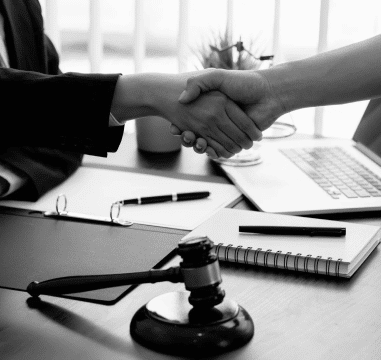St. Louis Police Brutality Lawyer
St. Louis has the highest rate of people killed by the police each year in the United States, and other forms of police brutality are also disturbingly common in the city. The Police Brutality Center seeks to bring awareness to the problem of police brutality in the United States and is ready to help connect victims to a skilled St. Louis police brutality lawyer.
Were you or a loved one a victim of police brutality?
Attorneys that work with Police Brutality Center may be able to assist you.
"*" indicates required fields
Content Last Updated: May 2, 2025
Police brutality is a systemic and widespread problem across the United States, impacting thousands of Americans annually and disproportionately impacting marginalized communities. Instances of police brutality against civilians are particularly prevalent in St. Louis, Missouri, which has the nation’s highest rate of civilians killed by the police each year.
Victims of police brutality have legal options available to them to pursue justice, and the Police Brutality Center is ready to help. The Police Brutality Center can assist those who have experienced violence at the hands of law enforcement by connecting them to a qualified St. Louis police brutality lawyer.
What Is Police Brutality?
Police brutality encompasses a variety of abusive and violent behaviors by law enforcement against citizens. Police brutality can include excessive force, which is the use of violent force beyond the minimum necessary to safely contain a situation. Excessive force may involve the use of nonlethal or lethal weapons, including batons, tear gas, Tasers, and firearms. Other forms of police misconduct that harm citizens include sexual assaults and forced confessions.
Many cases of police brutality result from racial profiling and discriminatory attitudes among the police. Racial profiling is when a police officer targets or unfairly stops an individual based primarily on their race. This often constitutes an abuse of power by the police and is illegal in many cases.

St. Louis Police Brutality Statistics
In the United States, police killed at least 1,096 people in 2022. There were also many more instances of nonfatal violence by police officers. The statistics for police brutality in the St. Louis area are staggering. St. Louis has the highest rate of police brutality in the nation, according to the Mapping Police Violence database. Between 2013 and 2023, members of the St. Louis Metropolitan Police Department killed people at a rate of 15.2 per 1 million.
Police Misconduct Laws in St. Louis
Federal laws prohibit law enforcement from acting in a way that deprives citizens of their constitutional rights, including their rights to privacy and safety. Under the federal Police Misconduct Provision, excessive force, discriminatory searches, and other police misconduct are illegal.
Individuals cannot get any compensation or damages under this law. The statute can only be used to end the pattern of misconduct and not to compensate individual victims. However, individuals can sue the government under Section 1983 of the Civil Rights Act, 42 U.S.C. § 1983, to seek damages for a civil rights violation.
The St. Louis Metropolitan Police Department is subject to local, state, and federal laws aimed at preventing police misconduct. St. Louis police officers are specifically prohibited from using chokeholds or strangleholds. Additionally, officers must use de-escalation tactics where “time and circumstances permit.”
St. Louis Police Brutality Lawyers
Several attorneys and law firms in St. Louis and the surrounding areas regularly provide legal representation in police brutality and civil rights cases.
The police brutality and civil rights attorneys at Newton Barth handle police brutality and excessive force cases. The firm obtained a settlement for a client who was wrongfully jailed for over 50 days and lost custody of her children. The woman had merely been a passenger in a car involved in a felony police chase. The settlement amount was nearly twice the client’s annual income.
Other St. Louis police brutality lawyers and law firms include:
- Fernandez Law represents individuals injured during an interaction with the police.
- Mutrux Law Firm handles cases that involve a personal injury resulting from police misconduct or excessive force.
- James Law Group practices civil rights law, including cases of police misconduct, excessive force, and racial profiling.
Why Work With a Police Brutality Lawyer?
Police brutality cases are complex, and police departments will have vast resources and a political network protecting them.
A police brutality lawyer in St. Louis can help evaluate your case and explain your legal options and potential next steps. A police brutality or civil rights lawyer will also be familiar with the state and local laws in your area, as well as your federal Constitutional rights.
If you want to connect with a St. Louis police brutality lawyer, the Police Brutality Center can help. Contact us to explore your legal options.

Filing a Civil Rights Claim in St. Louis
To begin a civil lawsuit after experiencing police brutality, you must file a complaint in court. If you have an attorney representing you, the attorney can file the lawsuit and initiate the legal process. In a civil rights lawsuit against a police department or an individual officer for misconduct, victims may seek compensation for the damages suffered.
If you are unsure whether filing a lawsuit is best for you, consult with a police brutality lawyer. A lawyer can help you explore your options. They can guide you through the legal process, protecting your rights and ensuring you follow the necessary procedures.
You can also file a complaint with the St. Louis Division of Civilian Oversight. This complaint will be investigated by the St. Louis Police Department’s Internal Affairs Division and the Division of Civilian Oversight rather than in court. A complaint may be filed online, by mail, or in person, and it will then be investigated by the Internal Affairs or the Division of Civilian Oversight.
Police Reform and Legislation in St. Louis
Since the high rates of police brutality in St. Louis came to light, there have been several attempts to reform and re-organize the St. Louis Metropolitan Police Department. After the killing of Michael Brown by police sparked protests in nearby Ferguson, Missouri, St. Louis has increased the required police training hours and introduced mandatory implicit bias and social interaction training.
The state government has also made efforts to take over control of the St. Louis Metropolitan Police Department to prevent the city from undertaking additional reforms. The police union backed this proposal in an attempt to block police reform in the city. But in May 2023, the proposal failed, and control of the St. Louis Police Department remains in the hands of the city government and St. Louis voters.
St. Louis Civilian Oversight Board
The St. Louis Civilian Oversight Board is a civilian-led board that helps investigate complaints of police brutality made against St. Louis law enforcement. The board was formed in 2015 after the Michael Brown killing. The board was created to provide additional oversight and accountability for law enforcement officers engaging in police brutality.
However, the Civilian Oversight Board has reportedly struggled with its effectiveness over the past few years. Legal actions by the police union and obstruction by the city government have prevented the board from meeting. The board’s last meeting was in August 2022.
Seeking Justice for Police Brutality
Unfortunately, police brutality, excessive force, and other forms of police misconduct are prevalent in the United States and are especially widespread in St. Louis. A St. Louis civil rights lawyer or police brutality attorney can be a valuable resource and advocate on your side as you pursue justice after experiencing police brutality.
The Police Brutality Center is here to help. Get legal help by filling out our online form today.

